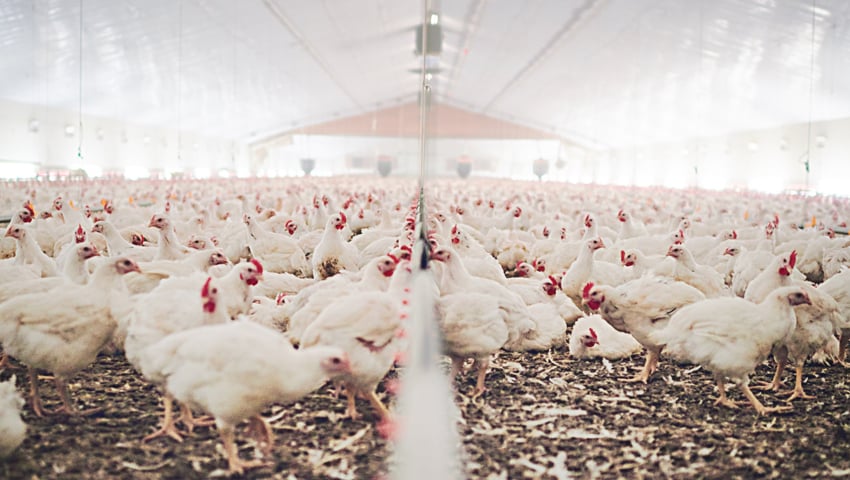A NEW report from Compassion in World Farming says that “Bird flu is getting worse, and outbreaks are longer lasting and are no longer purely seasonal; they spread quickly – killing wild and farmed birds.”
The report, written by Compassion’s Chief Policy Advisor Peter Stevenson, calls for major reforms to the poultry industry to address the rising prevalence of the disease.
Philip Lymbery, Chief Executive of Compassion in World Farming, said “Birds both farmed and wild have become victims of this cruel disease. Globally since 2021, more than half a billion farmed birds have died or been culled due to bird flu. The toll on wild birds is likely to have been vast. Although mostly affecting birds, spill-over events, where the disease jumps the species barrier, has already happened in mammals.”
The report, Bird flu – Only major reforms can end it, states that respected scientific bodies, including the European Food Safety Authority (EFSA), continue to raise concerns about avian flu’s potential spread to people and possible links with future pandemics. However, governments and the poultry sector usually blame wild birds for bird flu, detracting from industrialised farming’s role in the development of this highly infectious disease.
Professor Devi Sridhar, chair of global public health at the University of Edinburgh, has said, “The more chances the virus has to jump into a human and mutate, the more likely it is a dangerous strain will emerge that could set off the next pandemic.”
In the report, Compassion says that “A comprehensive action plan is needed to fully tackle the root causes of the disease – otherwise the world could face repeated, devastating outbreaks of bird flu for years to come. Millions more birds and other mammals are likely to suffer and die and the health of millions of people may be in serious jeopardy.
“Industrial poultry production is a key factor behind the regular outbreaks of bird flu witnessed in recent years. Industrial production, in which large numbers of birds are packed into a shed, gives a virus a constant supply of new hosts; it can move very quickly among the birds, perhaps mutating as it does so.
“In this situation, highly virulent strains are likely to rapidly emerge and a far-reaching transformation of the intensive poultry sector is required.”
The report calls for lower stocking densities, smaller flocks, and birds whose health has not been undermined by genetic selection for fast growth and high yields. It also says that we need to end the clustering of large numbers of poultry farms close together in a particular geographic region.
In addition, the report says that there is clear evidence that pigs can act as ‘mixing vessels’ in which different viruses can re-assort and new viruses that are a mix of pig, bird and human viruses can emerge. The pig sector should be restructured to make it less vulnerable to the transmission and amplification of influenza viruses. This would involve reduced stocking densities, smaller group sizes and avoiding clustering large numbers of farms in a particular area.
Read the report: Bird flu – Only major reforms can end it
